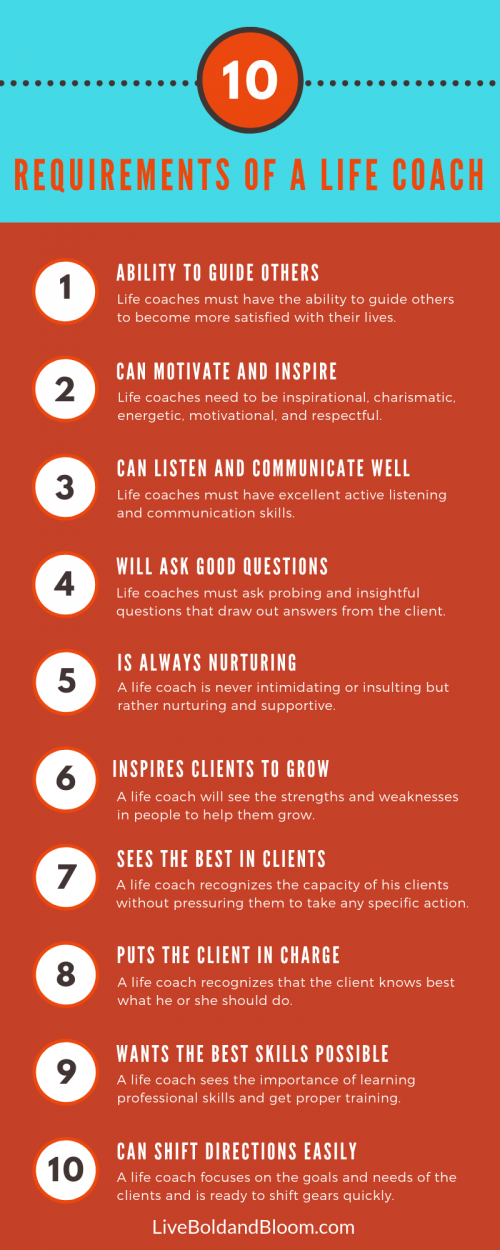Do you want to be in a giving or a healing profession where you are positioned to help other people with their lives?
If you believe you are empathetic and a good problem solver, establishing a career as a life coach might be right for you.
But . . . you might be wondering about a life coach salary and what a life coach does exactly.
These are important questions to ask before you decide to become a certified coach.
You may not become wealthy based on the current life coach salary range, but you will enjoy a rewarding job that has the potential for changing and improving lives.
And based on your own expertise in this industry, you'll have the ability to motivate yourself to increase your life coach salary and build your business.
What Is The Average Life Coach Salary?
According to research by Ziprecruiter, 63% of life coaches make between $11,000 and $40,499 per year.
However, the national average salary is $72,919 a year, and the upper range of salary is $335,500.
This wide range suggests a few things. First, some people coach as a side or part-time job, so they are not making a full-time salary.
63% of life coaches make between $11,000 and $40,499 per year.
Also, there's a lot of volatility around the country for a life coach salaries which may be due to supply and demand.
Or it may depend on the cities that have the best training programs available and therefore have the best life coaches.
Life coaches charge different fees depending on their experience, but the average cost for a one-hour session with a life coach is $231.
- The average salary for this profession ranges worldwide, with the highest average in Oceania ($73,100) and the lowest in Eastern Europe ($18,400).
- The average salary for a life coach in the middle east, Africa, and Asia is in the $30,000 range and for Western Europe, it is $55,300.
According to a 2016 International Coach Federation(ICF) report, there were about 17,500 life coach practitioners in North America, and the life coach average salary was reported to be about $61,900.

However, it is important to note that few coach practitioners choose to exclusively work as coaches.
Often, coaches work part-time or even work full time in another professional field and do some life coaching on the side.
The flexibility of life coaching profession really allows those who choose to go into this field to set their own standards for hours and how much salary they can make.
What Is a Life Coach? (Here's the full life coach job description to clarify.)
Change is an unavoidable part of life that many people fear. Though many people have a tough time coping with it, change is what propels people forward in life.
That's where a life coach comes in — by helping people overcome their internal roadblocks, plan out their futures by creating goals and take the necessary steps to reach those goals.
There are a number of reasons why someone might seek the services of a professional life coach.
For example, they might be interested in making a change in their lives but are not quite sure how to do that.
Or, they may be going through a turning point such as a divorce, a career change, or moving to a new city, and need help managing this change.
It can make a huge difference to have a mentor and cheerleader by their side.
Coaches partner with their clients as a partner rather than telling them what to do, allowing their clients to take control of their own destinies using their inner wisdom and good judgment.
In simple terms, a life coach offers support and guidance to help people make a positive change in a way that sets them up for success.
A life coach can help someone:
Life coaches have a synergistic relationship with their client that is designed to help them reach their full potential.
Just like athletes use the insights, support, and perspectives of their coaches and trainers, many business leaders, professionals, and individuals use the services of a coach to boost their lives to the next level.
Coaches hold their clients accountable by keeping in touch with them on a regular basis to check on their progress.
Regularly scheduled phone calls prompt clients to take necessary action. If someone doesn't have a coach rooting them on, they are likely to procrastinate or push their goals off indefinitely.
Life coaches also have the expertise to help clients set the right goals, increase their income, and structure their lives in an effective way to be more productive while exerting less effort.
People are able to achieve more in less time when they have the input of an accredited professional
Finally, coaches know how to talk to people in a naturally motivating way.
They give their clients the necessary time to integrate their new ways of thinking and act on their goals every week. This makes clients find that changes start to happen quickly after starting their work with a life coach.
Personal coaching is not the same thing as therapy.
These professionals don’t focus on issues or traumas that have occurred in the past. They're not psychologists or therapists.
It is best to resolve any outstanding issues from your past that may be holding you back before starting your work with a life coach.
It is common for unresolved traumas to prevent people from getting what they want in life. Life coaches only focus on the here and now and any goals that their client may have for the future.
Most clients are already healthy and successful people who are in a bit of a rut or just want to make a change in their lives with the support that a life coach can provide.
Life Coach Requirements
If you're considering becoming a certified coach, you need to think about these requirements:
A certified coach shouldn't be intimidating or insulting. Rather, it is important to nurture the relationship with clients to help motivate them to meet their goals.
It is important to know how to see the strengths and weaknesses in people to help them grow.
It is also critical to be able to recognize what motivates clients so a coach can then use that driving force to help the client work harder.
Because everyone has different motivations behind their actions, a good coach can use different types of driving forces that people have to help increase the motivation behind their actions.

A personal coach must be able to recognize the capacity of his clients without putting undue pressure on them to take any specific action.
Clients need to feel comfortable while talking to their life coach rather than pressured by expectations that hinder the growth that they are seeking.
Goals should certainly be made clear, but there should not be pressure exerted on the client. Life coaches must be able to help their clients break through their limiting beliefs and challenge them to think on a larger scale.
Because anyone can benefit from the services of a coach, these professionals must have the ability to work with all types of people.
Anything from entrepreneurs, executives, managers, and business owners to actors, musicians, artists, and home-makers. Anyone who notices a gap between where they are in their life right now and where they want to be can use the help of a life coach.
There are no formal requirements for credentials or training to become a certified coach.
However, seeking out a credentialed training and certification program will give you more credibility with potential clients, especially because an increasing number of people are choosing to go into this occupation.
The field of life coaching is unregulated, although some colleges and universities have started to offer courses that are related to life coaching.
However. there are many personal coach training programs and certification options available.
Legitimate credentialing organizations, like the International Coach Federation, evaluate coaching programs based on ethical standards and competency.
More Related Articles:
How to Become a Life Coach + 56 Coaching Niches
13 Practical Steps to Inner Peace
Should You Become A Life Coach?
Life Coach Job Outlook
You are probably wondering if life coaching a good career in general. This profession is considered a lucrative field to get into.
People who are drawn to being a coach often enjoy helping other people and want to use their strong leadership and problem-solving abilities to do this.
Life coaches often choose to be self-employed, which requires knowing how to run a business.
You may need to take a class in running a small business so you know how to handle accounting and marketing correctly.
It's also critical to attend networking events and seminars and even work with a senior coach in order to develop and refine the best coaching techniques.

Networking with other coaches helps create a community of support among the professionals in this business and may even lead to client referrals, which are critical for self-employed life coaches who are just getting started with their business.
Professionals in this business find it a fulfilling, meaningful and rewarding career.
Although anyone can become a coach, those who want to be the best coach possible recognize the importance of getting certified by a professional training school.
But when it comes to salary, you need to be realistic and recognize there is a lot of variances.
The U.S. Bureau of Labor Statistics doesn't collect data on life coaches, but rather they consider these professionals to be in the category of “rehabilitation counselors; educational, guidance, school, and vocational counselors; and personal care and service workers, all other”.
The salary you might make as a coach is impossible to predict with any certainty. Until you become established as a coach with many clients, you may need to consider having an additional source of income.
What companies hire life coaches?
Although many life coaches are independent contractors, the number of salaried jobs for coaches in organizations has increased significantly over the last fifteen years.
Businesses often hire coaches to help motivate employees, determine the best jobs for employees, and help management achieve their goals.
Some coaches help organizations improve the health and wellness of individuals in the organization, ensuring the employees' mental, physical, and emotional well-being.
A quick search of LinkedIn revealed over 4700 life coach jobs available in industry sectors including:
In short, life coaches can be found in just about any type of organization interested in supporting employees and furthering the mission of the organization.
Final Thoughts
So, can you make good money as a certified coach? Sure, you can. But you need to have the proper skills to be able to make it in the industry and build a strong client base over time.
If you naturally hold these skills, it is then important to establish yourself by taking classes to give you some credentials and experience in the field.
You have to network to meet other life coaches to learn about their successes and failures and invest in the process of becoming someone that other people can trust to guide them through the transitional periods of their life.
If you want to get word of mouth referrals, it is important to be successful with the clients that you do gain so they will recommend you to other people.
The more clients you take on, the more money you will make, so you have to find the best work-life balance for you when you are working as a life coach.
With time and experience, you can certainly get to the point of earning a solid income as a coach.

